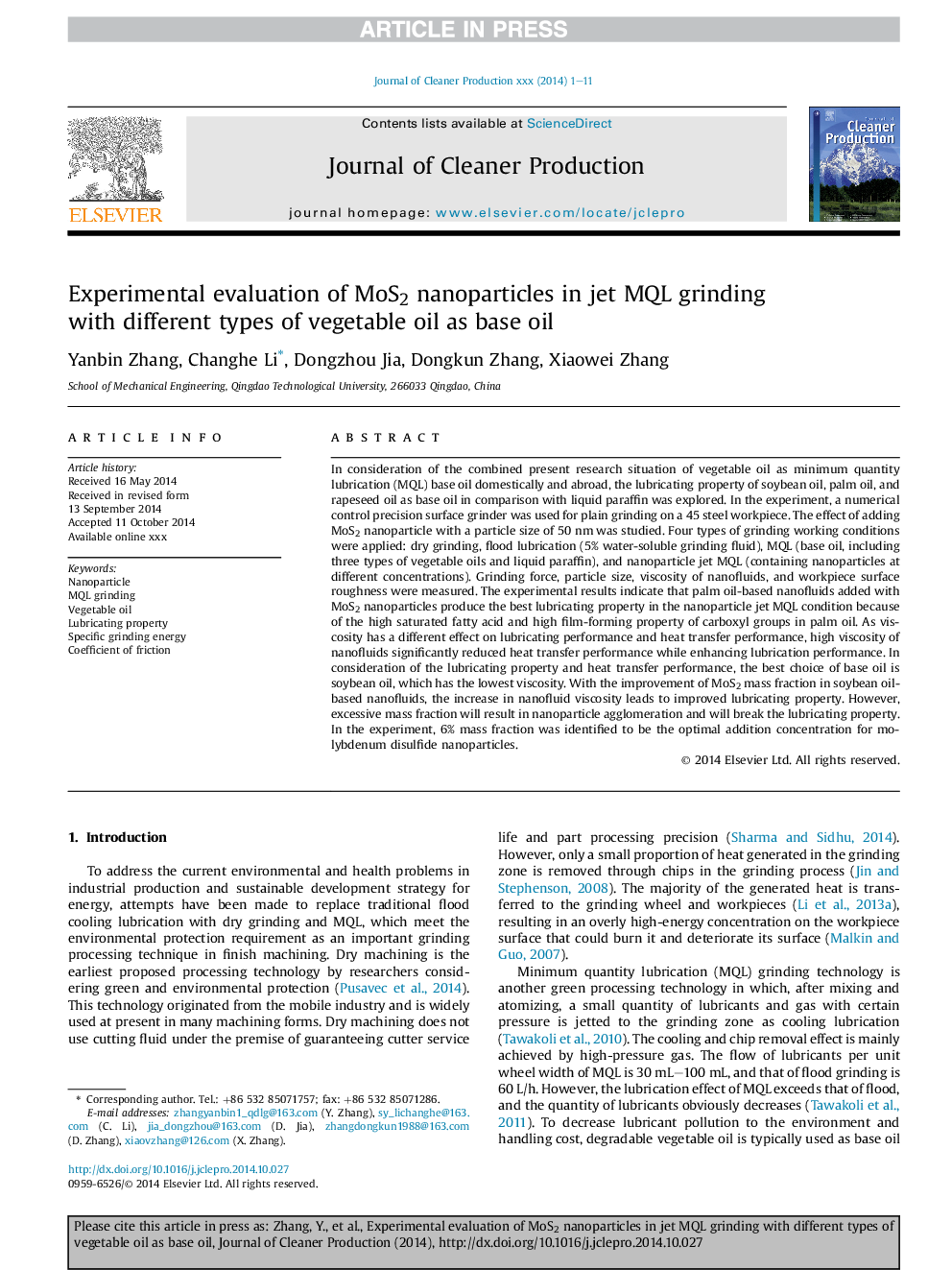| کد مقاله | کد نشریه | سال انتشار | مقاله انگلیسی | نسخه تمام متن |
|---|---|---|---|---|
| 8105598 | 1522159 | 2015 | 11 صفحه PDF | دانلود رایگان |
عنوان انگلیسی مقاله ISI
Experimental evaluation of MoS2 nanoparticles in jet MQL grinding with different types of vegetable oil as base oil
دانلود مقاله + سفارش ترجمه
دانلود مقاله ISI انگلیسی
رایگان برای ایرانیان
کلمات کلیدی
موضوعات مرتبط
مهندسی و علوم پایه
مهندسی انرژی
انرژی های تجدید پذیر، توسعه پایدار و محیط زیست
پیش نمایش صفحه اول مقاله

چکیده انگلیسی
In consideration of the combined present research situation of vegetable oil as minimum quantity lubrication (MQL) base oil domestically and abroad, the lubricating property of soybean oil, palm oil, and rapeseed oil as base oil in comparison with liquid paraffin was explored. In the experiment, a numerical control precision surface grinder was used for plain grinding on a 45 steel workpiece. The effect of adding MoS2 nanoparticle with a particle size of 50Â nm was studied. Four types of grinding working conditions were applied: dry grinding, flood lubrication (5% water-soluble grinding fluid), MQL (base oil, including three types of vegetable oils and liquid paraffin), and nanoparticle jet MQL (containing nanoparticles at different concentrations). Grinding force, particle size, viscosity of nanofluids, and workpiece surface roughness were measured. The experimental results indicate that palm oil-based nanofluids added with MoS2 nanoparticles produce the best lubricating property in the nanoparticle jet MQL condition because of the high saturated fatty acid and high film-forming property of carboxyl groups in palm oil. As viscosity has a different effect on lubricating performance and heat transfer performance, high viscosity of nanofluids significantly reduced heat transfer performance while enhancing lubrication performance. In consideration of the lubricating property and heat transfer performance, the best choice of base oil is soybean oil, which has the lowest viscosity. With the improvement of MoS2 mass fraction in soybean oil-based nanofluids, the increase in nanofluid viscosity leads to improved lubricating property. However, excessive mass fraction will result in nanoparticle agglomeration and will break the lubricating property. In the experiment, 6% mass fraction was identified to be the optimal addition concentration for molybdenum disulfide nanoparticles.
ناشر
Database: Elsevier - ScienceDirect (ساینس دایرکت)
Journal: Journal of Cleaner Production - Volume 87, 15 January 2015, Pages 930-940
Journal: Journal of Cleaner Production - Volume 87, 15 January 2015, Pages 930-940
نویسندگان
Yanbin Zhang, Changhe Li, Dongzhou Jia, Dongkun Zhang, Xiaowei Zhang,